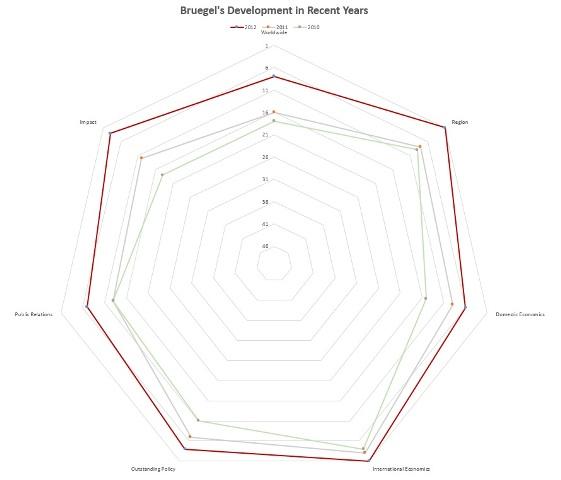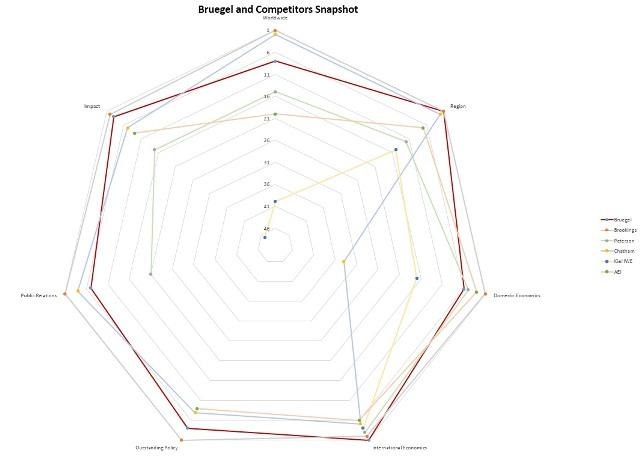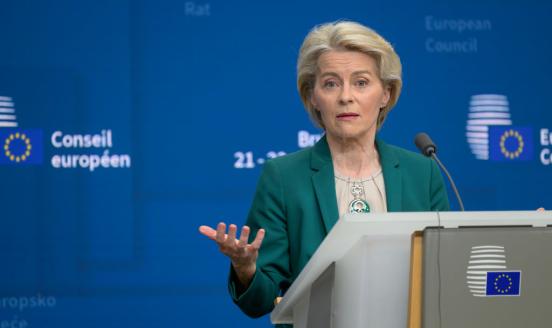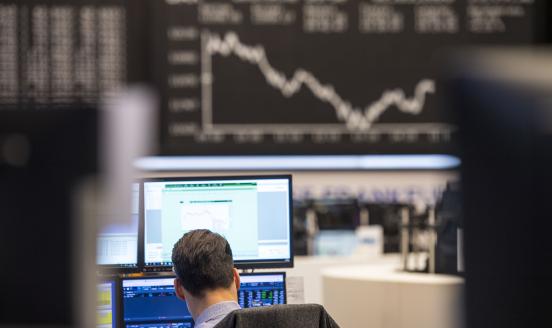Bruegel breaks global glass ceiling for European think-tanks
Bruegel ranked as 1st think-tank in Western Europe, the 2nd worldwide (non-US) and the 1st in International Economic Policy in the 2012 Global Go To T
Ten years ago, President Chirac and Chancellor Schröder signed the declaration that led to the creation of Bruegel, on the occasion of the 40th anniversary of the Elysée Treaty. Today, 10 years after that first impulse, Bruegel has been classified as 1st think-tank in Western Europe, the 2nd worldwide (non-US) and the 1st in International Economic Policy in the 2012 Global Go To Think Tanks Report released this afternoon.

The graph above includes Bruegel’s ranking on seven key indicators. The ‘worldwide’ ranking includes all nominated think tanks, whereas the ‘region’ ranking only compares think tanks within the same region (Western Europe for Bruegel). ‘Domestic economics’ and ‘international economics’ are policy-related rankings, looking at Bruegel’s contributions in these areas over the past 12 months. ‘Outstanding policy’ is short for outstanding policy-oriented research programs, looking at the quality and orientation of Brugel’s research. Finally, public relations and impact indicate Bruegel’s proven ability to communicate policies to the general public and to influence key decision-makers.
Below is a graph comparing the results of the six top think tanks in Bruegel's primary area of expertise, international economics.

This is the fifth time Bruegel has been considered by the Think-Tanks and Civil Societies Program at the University of Pennsylvania, the institution behind the Global Go To Think Tanks Report ranking. More than 6600 think tanks were invited to participate in this year’s ranking process, with 1647 think tanks being nominated in one or more categories (receiving more than five nominations). Following the nomination process, all think tanks were asked to complete a survey on the nominees, before a panel of experts reviewed the results to identify any serious errors, omissions or irregularities. A total of 1950 experts and peer institutions responded to the full survey, including academic institutions, journalists, international organizations and key stakeholders. The final results of the rankings were announced on the 17th of January 2012 and made public the following week.



